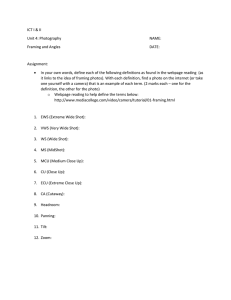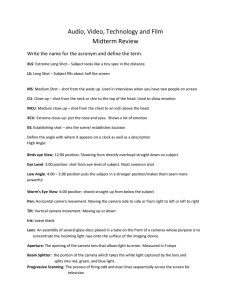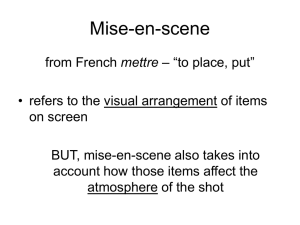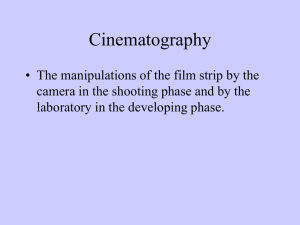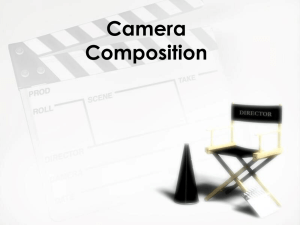camera work
advertisement
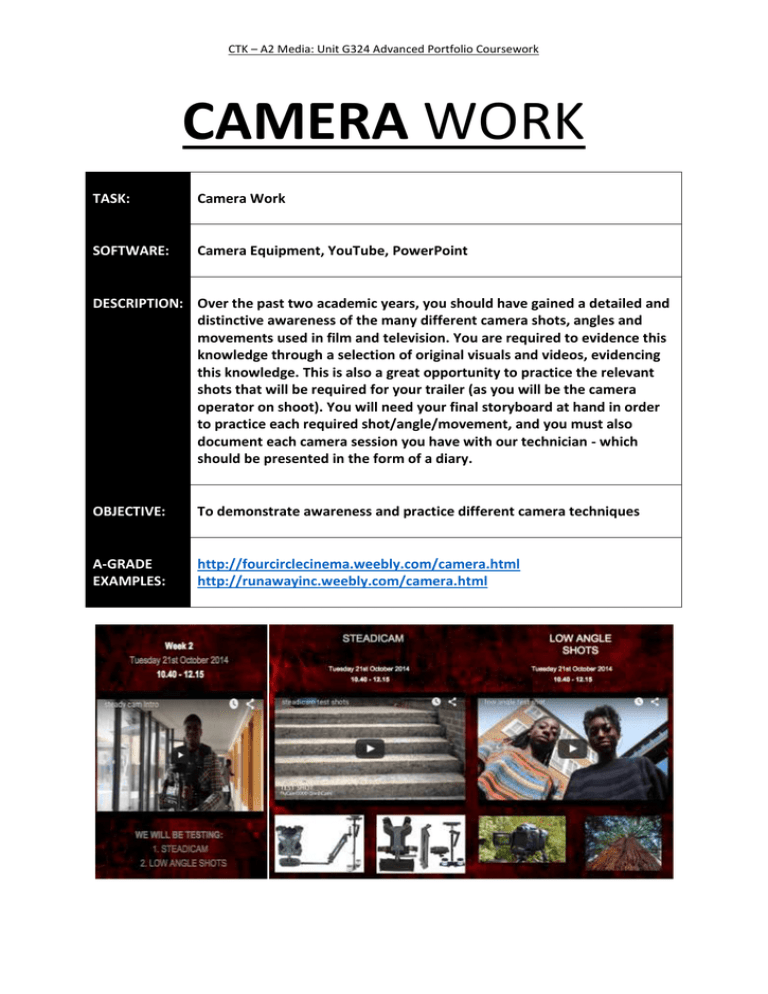
CTK – A2 Media: Unit G324 Advanced Portfolio Coursework CAMERA WORK TASK: Camera Work SOFTWARE: Camera Equipment, YouTube, PowerPoint DESCRIPTION: Over the past two academic years, you should have gained a detailed and distinctive awareness of the many different camera shots, angles and movements used in film and television. You are required to evidence this knowledge through a selection of original visuals and videos, evidencing this knowledge. This is also a great opportunity to practice the relevant shots that will be required for your trailer (as you will be the camera operator on shoot). You will need your final storyboard at hand in order to practice each required shot/angle/movement, and you must also document each camera session you have with our technician - which should be presented in the form of a diary. OBJECTIVE: To demonstrate awareness and practice different camera techniques A-GRADE EXAMPLES: http://fourcirclecinema.weebly.com/camera.html http://runawayinc.weebly.com/camera.html CTK – A2 Media: Unit G324 Advanced Portfolio Coursework Camera Work Task: To produce a ‘Camera Techniques’ instructional video. All videos must include all camera shots, angles & movements listed below, As well as music, voiceovers, & titles/credits. Camera Movements 1. Tracking Shot (Dollying): Camera on track moving in and out of the subject 2. Tilt Shot: Fixed camera position, moving up and down (Tilting) the subject 3. Pan Shot: Fixed camera position, swivelling (Panning) left to right of (or with) the subject 4. Zoom Shot: Fixed camera position, zooming in and out of the subject (Lens not camera) 5. Steadicam: Camera attached to a person, which follows the subject's movement. 6. Hand-Held: A small, light camera, often giving a jerky, ragged effect. Camera Angles: 1. Birds Eye View: Shot straight down on to subject (Overhead) 2. Worms Eye View: Shot straight up at subject (Ground level) 3. Two Shot: Two people in shot 4. High Angle Shot: Looking diagonally down at the subject. Connotes superiority. 5. Low Angle Shot: Looking diagonally up at the subject. Connotes inferiority. 6. Canted Shot: Camera at an angle, off balance 7. Wide Angle Shot: Often used for group shots, sometimes with a wide angled lens 8. Point of View Shot (POV): Shot as the line of sight of the subject (Eye level) 9. Over the Shoulder Shot: Shot behind a person which the main subject is talking to 10. Establishing Shot: Used as an opening shot. Reveals the setting of the story. Camera Shots 1. 2. 3. 4. 5. 6. 7. Extreme Long Shot (ELS): Subject is in the distance, focus is on the surroundings Long Shot (LS): Whole subject (Head to toe) and part of surroundings Medium Long Shot (MLS): Everything except subjects feet/lower leg Mid Shot (MS): Waist Up Medium Close Up (MCU): Chest/Stomach up Close up (CU): Head and Shoulders Extreme Close Up (ECU): Face/Main features
